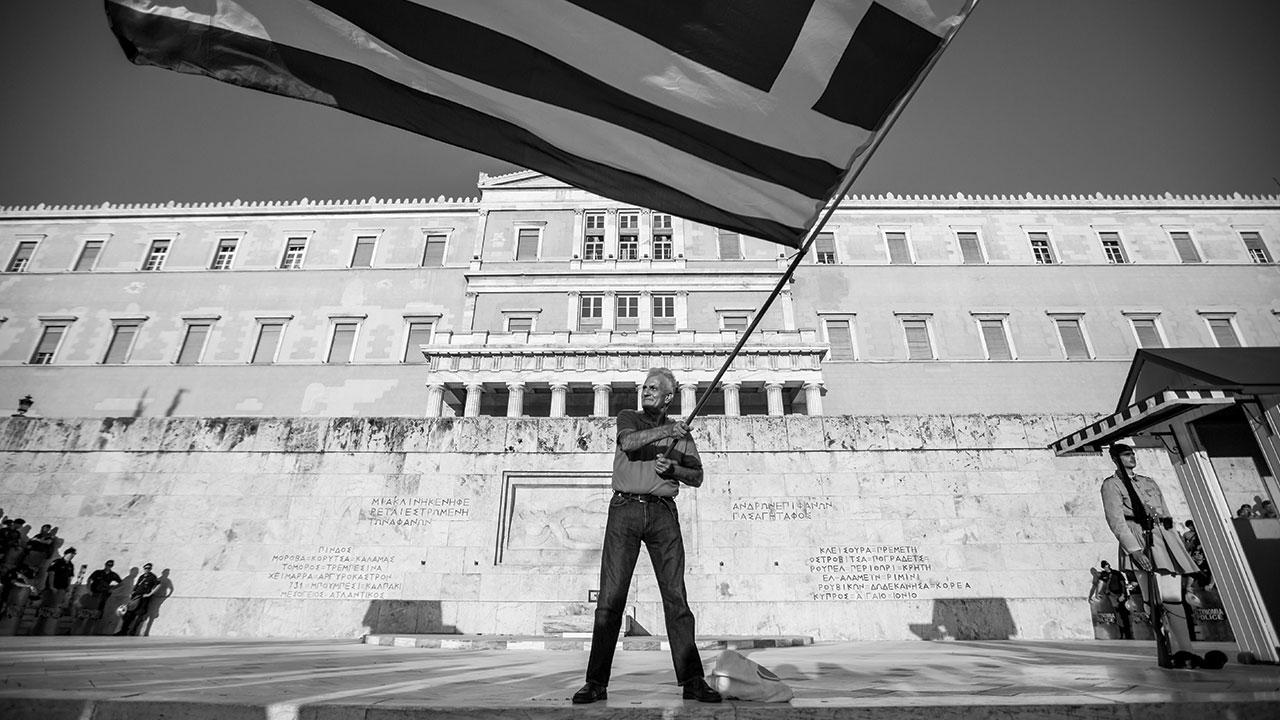
Recently we witnessed a set of events in Greece that have been described as very strange. A “referendum” was called to give the people of Greece a choice about whether to accept a bail-out deal from their creditors. The vote was held only eight days later and the majority of electors voted to reject the deal. The Greek Government then proceeded to accept a deal which has been described as much worse.
And so the question has been posed – could a Greek style referendum, like the one we saw on 5 July, happen here in Australia? Should this type of thing be decided within cabinet, rather than asking the opinion of every citizen?
Australian referendums
In Australia the word referendum has a very specific meaning and is used to alter the Constitution. However in other places around the world, such as Greece, the terminology is less specific. The method for altering our Constitution is outlined in Section 128. It’s a very long section, but the gist of it is:
The proposed law for alteration must pass both Houses of Parliament, then within two to six months the proposed change must be voted on by the electors. If a majority of the states and a majority of the electors approve the change it will be assented into law. There are circumstances where the referendum can go ahead if passed in only one house and there are protections for each state from any referendum that would diminish that state’s proportional representation. You can read the full text here.
So, referendums in Australia are only for Constitutional change. We use another term “plebiscite” to describe a vote given to the electors of Australia that doesn’t change the Constitution. The recent Greek referendum would be called a plebiscite in Australia.
Do they hold referendums for Constitutional alterations in Greece?
The Greek Parliament has the right to revise or amend the Constitution. There is no need for the parliament to go to a referendum for change. Two ballots are held at least one month apart and three-fifths of the members of parliament must agree for the resolution to be adopted. The Greek Constitution (created in 1975) has been revised in this manner three times: in 1986, in 2001 and in 2008.
What is an Australian plebiscite?
A plebiscite is a vote held on questions that do not affect the Constitution. Plebiscites can be used to test whether the government has sufficient support from the people to go ahead with a certain action and can be used for far wider issues than referendums. They are, however non-binding and this means that the results do not have to be implemented.
Plebiscites are an exercise in direct democracy. In a representative democracy, such as ours, we elect representatives to make decisions for us, but a plebiscite is able to give the representatives a clear indication of the will of the people at a certain point in time. There are no specific rules on how a plebiscite must be run.
Since federation in 1901 Australia has held three plebiscites. The last plebiscite was in 1977 to choose the national song. Rather than a Yes or No vote for a referendum, the electors were given a choice of four songs in which they indicated their preference. Advance Australia Fair achieved the highest vote, followed by Waltzing Matilda, God Save the Queen and the Song of Australia came in last. It was several years later, but Advance Australia Fair did eventually become the national song. Because the vote was non-binding, there was no requirement for the National Song to be implemented immediately.
The two plebiscites held earlier in Australia in 1916 and 1917 were to consult the Australian electors about conscription to the war. Both of these votes failed to gain an overall majority of states and electors. If these results are obtained in a referendum it fails. However, due to the non-binding nature of plebiscites, the issue of conscription popped up many more times in Australia throughout the 20th century.
More plebiscites?
There are very often calls to hold plebiscites in Australia. In 2011 then Opposition Leader Tony Abbott was calling for a plebiscite on the carbon tax. In 2012 the Australian technology website Delimiter was calling for a plebiscite on the NBN and more recently we have had Nova Peris calling for a plebiscite to be held before the proposed referendum for Constitutional recognition of Aboriginal and Torres Strait Islander peoples.
Should we hold plebiscites more often in Australia or does our representative democracy mean there is no need? Let us know what you think!
Photo attributed to Jan Wellmann

This work is licensed under a Creative Commons Attribution-NoDerivatives 4.0 International License.

